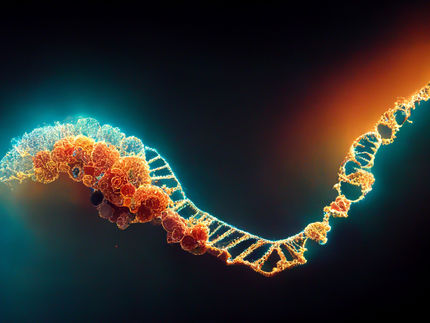Amsterdam Molecular Therapeutics’ Glybera Significantly Reduces the Risk of Pancreatitis in LPLD Patients
Amsterdam Molecular Therapeutics released data showing that its gene therapy Glybera® (alipogene tiparvovec) significantly reduces the risk of pancreatitis in patients with Lipoprotein Lipase Deficiency (LPLD). Pancreatitis, or inflammation of the pancreas, is a major clinical symptom of LPLD. It causes severe abdominal pain and often leads to hospitalization of patients as well as other complications such as diabetes and early atherosclerosis. Data were presented at the 79th European Atherosclerosis Society Meeting.
“These data demonstrate the dramatic impact Glybera can have in the lives of LPLD patients. Pancreatitis is a debilitating and extremely painful condition. Many patients end up in the hospital emergency room and try to control the pain by any means,” explained Janneke de Wal, Director of Global Sales & Marketing at AMT. “By reducing the incidence of pancreatitis episodes, Glybera has the potential to help “normalize” the day to day lives of patients affected by this disease and prevent the often frequent trips to hospital.”
Historical data on hospital presentations due to abdominal pain from 17 patients already treated with Glybera were collected in this case control study. Blinded event assessment was done by an expert adjudication committee using a modified Atlanta Diagnostic Criteria for acute pancreatitis to allow for incomplete historical data. A statistically significant (p=0.0434) reduction in the risk of acute pancreatitis was seen when the period from the first pancreatitis event to administration of Glybera was compared with the post-therapy period (median = 2.9 years). The hazard ratio, a measure of how often an event occurs over time, indicated a 63% reduction in risk of acute pancreatitis after administration of Glybera (95% CI 0.142-0.971).
Other news from the department research and development

Get the life science industry in your inbox
By submitting this form you agree that LUMITOS AG will send you the newsletter(s) selected above by email. Your data will not be passed on to third parties. Your data will be stored and processed in accordance with our data protection regulations. LUMITOS may contact you by email for the purpose of advertising or market and opinion surveys. You can revoke your consent at any time without giving reasons to LUMITOS AG, Ernst-Augustin-Str. 2, 12489 Berlin, Germany or by e-mail at revoke@lumitos.com with effect for the future. In addition, each email contains a link to unsubscribe from the corresponding newsletter.
More news from our other portals
See the theme worlds for related content
Topic world Gene therapy
Genetic diseases once considered untreatable are now at the center of innovative therapeutic approaches. Research and development of gene therapies in biotech and pharma aim to directly correct or replace defective or missing genes to combat disease at the molecular level. This revolutionary approach promises not only to treat symptoms, but to eliminate the cause of the disease itself.

Topic world Gene therapy
Genetic diseases once considered untreatable are now at the center of innovative therapeutic approaches. Research and development of gene therapies in biotech and pharma aim to directly correct or replace defective or missing genes to combat disease at the molecular level. This revolutionary approach promises not only to treat symptoms, but to eliminate the cause of the disease itself.
Last viewed contents
Archimedes Pharma Enrols First Patient in Phase III Programme for Nasalfent in Cancer Pain
The virulence of the Toxoplasma parasite identified























































